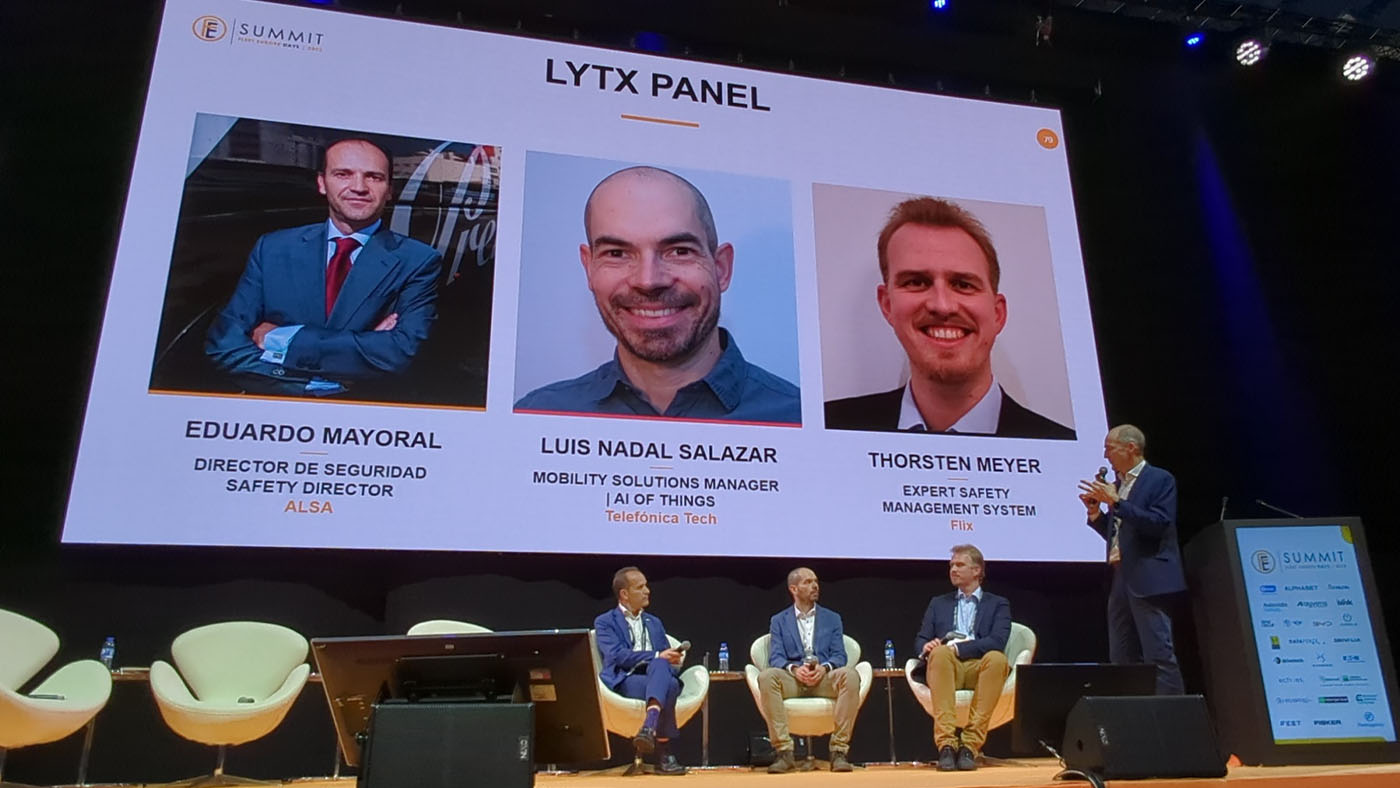A Pragmatic Route to Destination Zero

We recently returned to The Fleet Europe Summit, a two-day event in Lisbon that gathered more than 1,200 fleet decision makers to share knowledge and discuss the topics impacting commercial fleets today. The theme of this year’s summit was Destination Zero: Adopt and Adapt.
At last year’s event in Dublin, Lytx’s VP of EMEA, Damian Penney, chaired a discussion with AXA and PepsiCo about intelligent dash cams and how the data derived from them can be used to improve road safety. In the 12 months since then the conversation has developed rapidly. We’re not only exploring how AI can help impact safety, but sustainability too. Once considered separate entities, these are now inextricably linked.
This year, Damian presented Lytx’s take on the triple bottom line of People, Planet and Profit, which has been so widely adopted in boardrooms worldwide. While most fleets would agree that lowering emissions is a priority goal, the reality is that any initiative to improve sustainability must also bring wider benefits for a business. Few companies can afford to adopt technology to help the planet unless it also brings about improvements for people and profit.
Damian pointed out that the biggest impact on both the sustainability and profitability of a fleet comes not from any hardware or machinery, but from its drivers. Drivers are a fleet’s most valuable asset and can play a vital role in helping to achieve efficiencies that reduce emissions as well as costs. “We have to give them the tools not only to have that impact but to be safe on the road and to get home every night,” commented Damian, reminding the audience that Lytx’s mission is to save lives.
Damian was joined on the stage by Eduardo Mayoral; safety director at Alsa, Luis Nadal Salazar; mobility solutions manager for AI of Things at Telefonica Tech and Thorsten Meyer; an expert in safety management systems for Flix.
Each of the panellists outlined how they are using technology to protect drivers and improve standards of driving. For Eduardo Mayoral, intelligent dash cams have transformed Alsa’s approach from reactive to proactive. The company used to consider corrective action only when an accident had taken place. Now it is using video technology to detect behaviours that contribute to accidents and to correct them in the moment. A bank of data is building up, allowing the system to learn continually. As Eduardo stated, “We have a huge amount of data – and we are applying AI to it to take the right decisions.”
Thorsten from Flix explained how his company was using technology to uphold safety standards in large fleets of buses that are operated by local companies. He used the analogy of someone checking up on each driver every five minutes to explain how intelligent dash cams can alert the driver to any risky behaviours. By empowering drivers through technology, Flix is able to keep its Flixbus fleets safe even though they operate independently.
Luis from Telefonica told a similar story of how the company’s technology has advanced and is now able to collect and analyse data from each vehicle in its fleets, sharing the resulting insights with the driver.
After listening to the discussion, nobody could be in doubt about the importance of people in the “3 Ps” of the triple bottom line. No matter how much we change fuels or improve vehicle efficiency, any fleet improvements – whether that’s environmental or not – are in the hands of the drivers. We need to look after them, and safety is a big part of that.
To learn more about how you can decarbonise in the fastest, least disruptive and most cost-effective way, download our latest whitepaper now.
